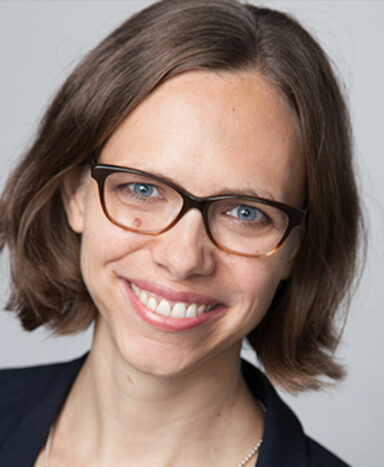
Karen Alim studied physics in Karlsruhe, Manchester and Munich. She obtained an MSc in Theoretical Physics in 2004 working with Alan J. Bray from Manchester University, U.K., followed by a Diplom (MSc) in Physics and Biophysics at the LMU Munich. During her PhD with Erwin Frey at the LMU in Munich she investigated the form of biological materials like DNA/actin and patterning mechanism during leaf development. As a grad fellow at the KITP in Santa Barbara, United States, she investigated the mechanics of plant growth. After her doctoral degree in 2010 she joined Michael P. Brenner’s group at Harvard University where she focused on the adaptation dynamics of the network-like forager Physarum polycephalum. In 2015 she started as an independent group leader at the Max Planck Institute for Dynamics and Self-Organization. In 2019 she joined the Technical University of Munich as a permanent professor. Karen is recipient of the John Birks Award of Manchester University and held an appointment as lecturer in Applied Mathematics at Harvard University.
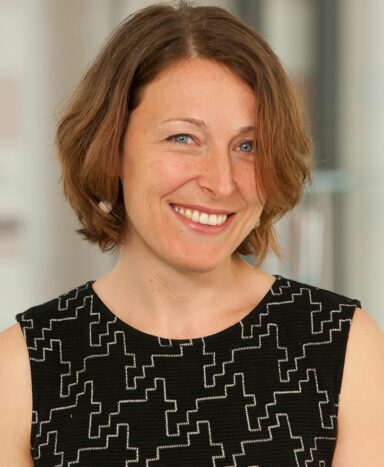
I currently lead the Max Planck Research Group for Terrestrial Palaeoclimates at MPIC in Mainz. I am a Quaternary earth scientist and geochronologist, specialising in luminescence dating and dryland environments. I am Privatdozentin at the University of Leipzig and maintain affiliated researcher status at the MPI for Evolutionary Anthropology in Leipzig.
Prior to arriving at MPIC, I led the luminescence dating laboratory at the MPI for Evolutionary Anthropology in Leipzig for 7 years, developing records of human-environmental interaction over long timescales on the desert margins of Australia, eastern Europe, Africa and Central Asia. During this time I was awarded the DFG Albert-Maucher-Prize for interdisciplinary geoscience research, as well as the Hans-Bobek-Prize for my Habilitation thesis (awarded at the University of Leipzig).
Prior to arriving in Germany, in my first postdoctoral position, I ran the luminescence laboratory in the Research School of Earth Sciences, Australian National University, investigating the history of aridity and drought in Australia. I obtained my PhD in 2007 from the Australian National University on the history of aridity in the central Australian desert dunefields over the last 200,000 years, for which I was awarded the Director‘s Prize in Scientific Communication.
As an undergraduate I studied earth sciences and German language at the University of Melbourne, though I must admit I never expected my German to be so useful!
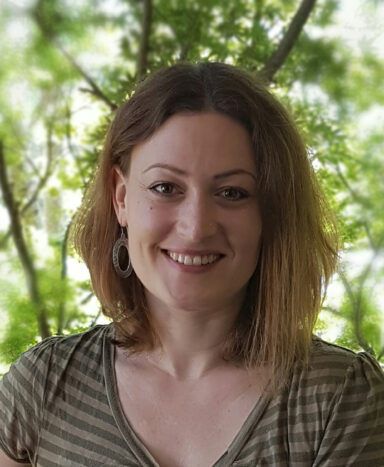
I studied Biology at the Saarland University in Saarbrücken, Germany and obtained a Masters degree from Université Paris VI and the Ecole Normale Supérieure, Paris, France. I earned my PhD from Heidelberg University after performing PhD studies at EMBL Heidelberg, Germany and the Temasek Life Sciences Institute, Singapore. From 2010 to 2016, I was a Postdoctoral fellow at University of California, Berkeley, USA in the Department of Molecular and Cell Biology.
Since 2017, I lead a Max Planck Research at the Max Planck Institute of Immunobiology and Epigenetics in Freiburg, Germany. My lab studies the genetics and epigenetics of the nervous system. We investigate neuron-specific RNA signatures and their role in neuronal development and function by using various technologies, ranging from functional Drosophila genetics, behavior studies, and imaging, to RNA biochemistry and our special focus, brain transcriptomics.
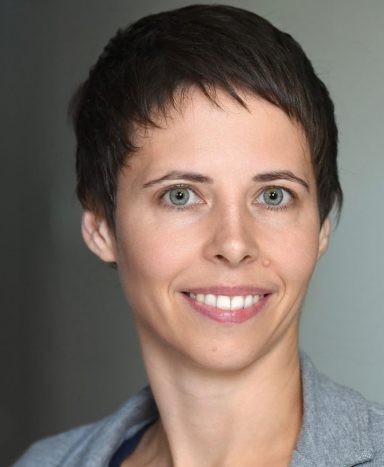
The main goal of my research is to understand how complex regulatory networks govern quantitative information processing and molecular decision-making during mammalian differentiation processes. During my PhD, I combined quantitative experiments and modeling to dissect the gene-regulatory network governing differentiation of type 1 T-helper lymphocytes, whereby I solved a long-standing question regarding the respective roles of IFN-γ and IL-12. For my postdoctoral research, funded by an HFSP long-term fellowship, I moved to a new field, epigenetics, because I believed that this layer of regulation was crucial to understand how transcriptional states are maintained in mammals. I learned how to apply genome-wide techniques and found that genes within the same topologically associating domain (TAD) tend to be co-regulated, providing a first indication for the functional role of TADs, which has since then been confirmed in numerous studies. Moreover, I discovered fundamental sex differences in embryonic stem cells with regard to pluripotency and differentiation that are only relieved once X-dosage compensation has occurred through X-chromosome inactivation. In 2015 I started as a Max Planck research group leader to identify the regulatory principles that control transcriptional states in mammals, using the onset of X-chromosome inactivation as a model.
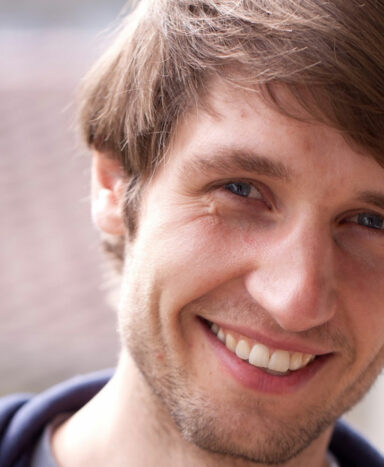
David Zwicker studied physics at the Technical University in Dresden and did his Ph.D. under the supervision of Frank Jülicher at the Max Planck Institute for the Physics of Complex Systems in Dresden, where he focused on active droplet models. He then joined Michael Brenner’s group at Harvard University as a postdoc to work on the information theory and fluid dynamics of olfaction. Since 2017, he leads the independent research group “Theory of Biological Fluids” at the MPI for Dynamics and Self-Organization in Göttingen, Germany.
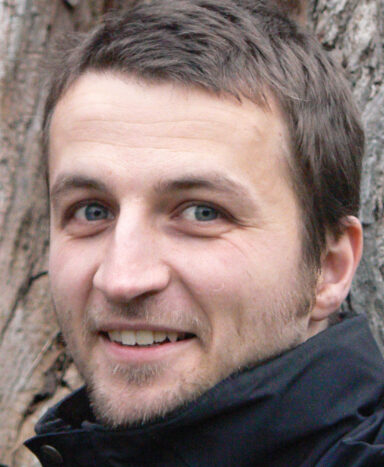
Currently Dr. Tobias Kaiser leads the Max Planck research group Biological Clocks at the Max Planck institute for Evolutionary Biology.
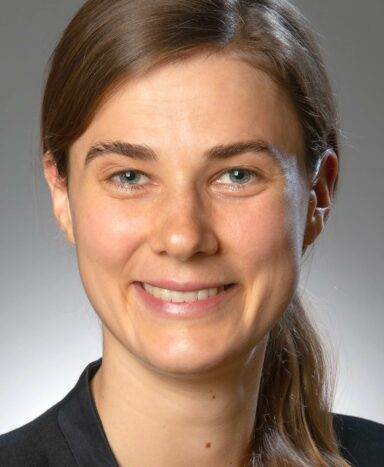
I completed my BSc at the University of Utrecht in the Netherlands and my MSc at the Karolinska Institute in Sweden, before moving to the University of Oxford in the United Kingdom.
I completed my PhD in Oxford at the Weatherall Institute of Molecular Medicine. Afterwards, I worked as a Junior Research Fellow for two years in the same institute, before moving to Germany to set up my group “Genome Organization and Regulation” at the Max Planck Institute for Biophysical Chemistry in Göttingen.

I currently hold a Research Group Leader position at Max-Planck-Institute for Biophysics.
Having graduated from University of Jena, Germany in 2013 with a MSc degree in Physics, I moved to the Max Planck Institute for the Science of Light in Erlangen, Germany. Under the supervision of Dr. Frank Vollmer, I successfully completed my PhD entitled “Ensemble and single-molecule biosensing with optical microcavities” in 2017.
From 2017 until early 2021 I held a postdoctoral researcher position in the group of Prof. Cees Dekker at TU Delft, Netherlands. My work focused on understanding motor activities of Structural Maintenance of Chromosomes (SMC) protein complexes using single molecule fluorescence microscopy. During this time I was awarded a Marie Skłodowska-Curie Research fellowship.
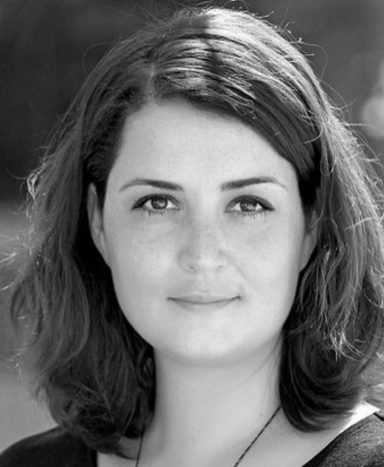
I’m an interdisciplinary anthropologist with broad training in the humanities and social sciences. Following an undergraduate degree in Philosophy (major) and Russian (minor) at Trinity College Dublin (2004), I left Ireland to complete two master’s degrees at UCL, in Human Evolution and Behaviour (2005) and in Anthropology (2008), as well as a certificate in Psychology at London Metropolitan University (2007). I stayed at UCL to complete my PhD in Evolutionary Anthropology (2013). After a short postdoc at UCL I moved to the Institute for Advanced Study in Toulouse (IAST), where I was their first-ever anthropology hire. In 2016 I joined the Max Planck Institute for the Science of Human History in Jena. There I managed a flagship interdisciplinary field-project in Vanuatu, involving geneticists, archaeologists, linguists and psychologists, and spent over 17 months in the field in Vanuatu. Since 2019 I have been at the Max Planck Institute for Evolutionary Anthropology in Leipzig, where I lead the BirthRites Independent Research Group, hosted by the Department of Human Behavior, Ecology and Culture.
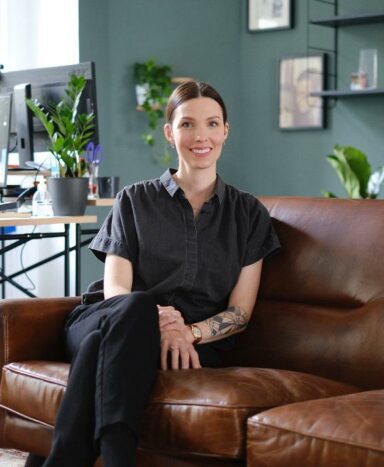
In May 2022, Dr. Laurel Raffington started an independent Max Planck Research Group named “Biosocial – Biology, Social Disparities, and Development”. Dr. Raffington is a German-American developmental psychologist. Her research examines how social inequality affects child and adolescent development at multiple biological and psychological levels. Laurel received her Ph.D. in psychology from the Humboldt-Universität zu Berlin whilst working at the Max Planck Institute for Human Development. Her dissertation was awarded the Otto-Hahn-Medal by the Max Planck Society and the Margret-and-Paul-Baltes Prize by the German Psychological Society. She then joined the labs of Prof. Kathryn Paige Harden and Prof. Elliot Tucker-Drob as a postdoctoral researcher at the University of Texas at Austin, Population Research Center. She also co-founded a video production company with her husband, Jermain Raffington, that explores Black German identities and racism in Germany.
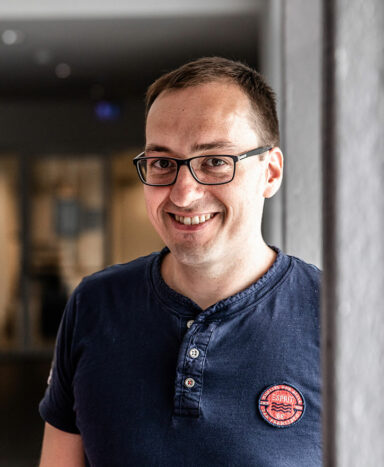
I am currently a research group leader at the Max Planck Institute for Evolutionary Biology in Plön.
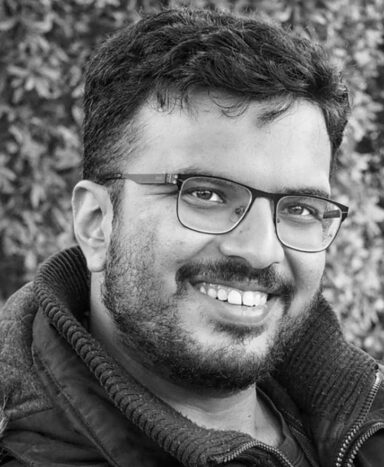
After completing his Bachelor’s degree from IIT Delhi, Kartik worked with Veit Elser in the Physics department of Cornell University on reconstruction algorithms in X-ray imaging. He completed his PhD in 2014 on “”Reconstructing images from sparse data””. He then went to work in the experimental group of Henry Chapman at the Center for Free Electron Laser Science in DESY, Hamburg where he continued his work on X-ray single particle imaging, but also worked on understanding diffuse scattering from protein crystals, fiber diffraction and intensity interferometry from incoherent light sources.
Since November 2018, Kartik has been leading the Computational Nanoscale Imaging independent research group at the Max Planck Institute for the Structure and Dynamics of Matter, Hamburg.
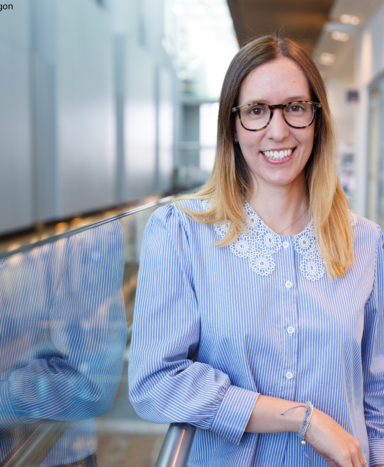
I have studied Biology at the University of Milan in Italy. During my university studies, I realized that developmental biology is my passion. I did my Ph.D. at the Max Planck Institute for Heart and Lung Research. I joined the lab of Prof. Stainier, where I studied vascular biology in zebrafish embryos, and I learned about embryogenesis, tissue interactions, and live imaging.
I was awarded the Otto Hahn Medal from the Max Planck Society. It was a great honor! Then, I decided to make a change in my career and learn about mammalian embryogenesis. That is why I joined the lab of Dr. Niakan at the Francis Crick Institute in London. This helped me to develop further my embryology skills and expand my network. Moreover, I became deeply interested in placenta development. During my postdoc, I had the great opportunity to develop my own collaborations. I was a visiting scientist at the Royal Veterinary College, where I learned about bovine embryos. Also, I had the amazing experience to work in a fertility clinic in Brussels. Towards the end of my postdoc, I decided to take the time to expand my knowledge in 3D models and I have started working on placenta organoids.
I have applied to the free-floater Max Planck Society group leader position, which I was very honored to receive. This gave me the opportunity to visit various Institutes to decide which one to choose to start my lab. I have decided to join the Max Planck Institute of Molecular Cell Biology and Genetics in Dresden.

I did my PhD in the DynaMo center of excellence, University of Copenhagen, led by Prof. Barbara Ann Halkier under the supervision of Prof. Meike Burow. During this time, I worked on transport and biosynthesis of the defense compounds glucosinolates in the model plant Arabidopsis thaliana. Following this, I worked as a post-doctoral researcher in the lab of Prof. Niko Geldner in Lausanne, Switzerland, where I became fascinated with roots and, especially their ability to interact with and shape their surrounding environment in order to optimize plant growth.
In 2019 I obtained funding through the Max Planck Society and Alexander von Humboldt foundation (Sofja Kovalavskaja programme) to start the Andersen lab at the MPIPZ and investigate these fascinating aspects of plant life further.
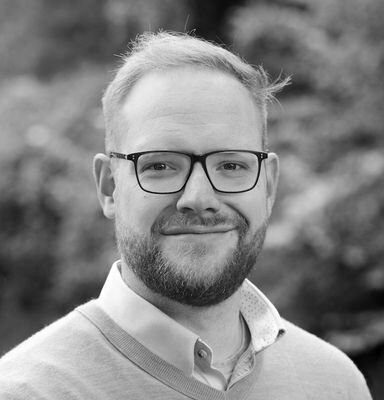
Dr Manuel Spitschan completed his undergraduate studies at the University of St Andrews (M.A. (Hons); 2012) and his doctoral training at the University of Pennsylvania (PhD; 2016). After a postdoctoral fellowship at Stanford, he joined the University of Oxford in 2017 funded by a prestigious Sir Henry Wellcome Fellowship. In 2020, he was awarded the title University Research Lecturer.
Dr Spitschan serves as member on Technical Committee 1-98 of the International Commission on Illumination (CIE TC 1-98), the OSA Color Technical Group executive committee, and as Daylight Academy member.
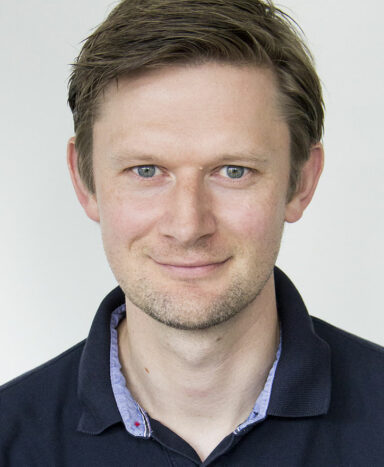
I was born in Fürth, Germany, and studied Molecular Medicine at the University of Erlangen, Germany. Over the last decade, my research focused on the biological aspects of cell motility, cytoskeletal dynamics, chemoattractant sensing and cell-cell communication and how these coordinate single cell and population dynamics during innate immune responses. During my PhD work we challenged the paradigm that cell migration necessitates adhesive interactions between cells and their environment. We made the surprising observation that immune cell motility outside the vasculature relies almost exclusively on shape changes driven by the actomyosin cytoskeleton. These findings significantly contributed to our current view that immune cell migration within tissues is largely independent from the molecular composition of the environment, and were awarded the Otto-Westphal-Prize of the German Society for Immunology. My postdoctoral work provided the first molecular map of the multi-step process that leads to the accumulation of sentinel immune cells, best described by a model of swarming movements. This work revealed a mechanism by which these cells communicate with each other and bring about their collective behavior in inflamed and infected tissues. The Robert-Koch Foundation recognized this work with their Postdoctoral Award. Since January 2015 I am heading the MPRG “Immune Cell Dynamics” in Freiburg. In 2016, the European Research Council decided to support our work with an ERC-StG.
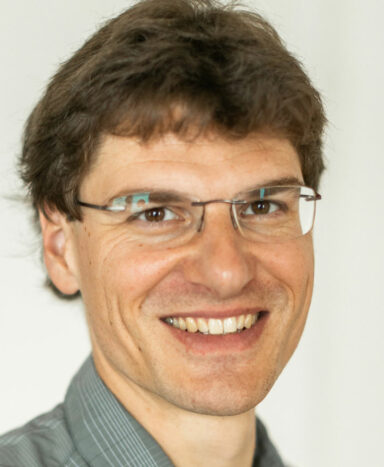
Georg Martius received his Diploma (Master equivalent) in Computer Science from University of Leipzig, Germany, in 2005. He pursued a Ph.D at the Bernstein Center for Computational Neuroscience in Göttingen, Germany finishing in 2009 with highest praise. Several postdoc positions at the Max Planck Institute (MPI) for Dynamics and Self-Organization, Göttingen, at the MPI for Mathematics in the Sciences in Leipzig and at the Institute of Science and Technology Austria have broadened his background. Since 2017 he is leading the Research group in Autonomous learning at MPI for Intelligent Systems in Tübingen, Germany, with the focus on Machine Learning for robotics.
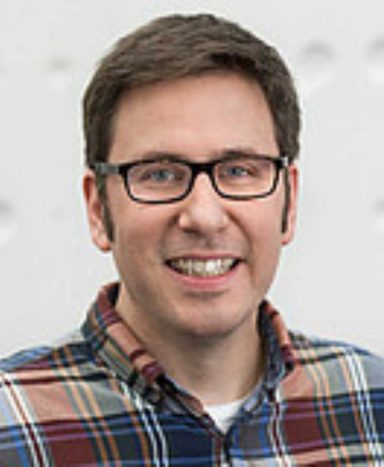
I am very interested in understanding biological problems on a mechanistic level. During my graduate work, I worked on questions centered around protein quality control and how cells have evolved to handle protein aggregation upon severe stress conditions. One aspect of this research was to understand how ageing influences the clearance of damaged proteins. For my postdoc, I moved away from protein quality control to the regulation of gene expression by chromatin. During my time in Tony Kouzarides’ lab, I discovered the first histone modification dedicated to only one polymerase, RNA polymerase I. In 2014, I set up my own group in Cologne and combined interests from my graduate and postdoctoral work to address how age-related changes in chromatin architecture impact on the regulation of gene expression.

From 2004 to 2010 I studied Psychology at Humboldt University in Berlin, while also doing a Minor in Machine Learning at University of Toronto as a Exchange student (2007-2008). I then received a scholarship from the Max Planck society to do a PhD at the MPI for Human Development Berlin, which I finished in 2013. Next I did a postdoc at the Princeton Neuroscience Institute, Princeton University (2013-17). Since 2017 I am leading a Independent Max Planck Research Group at the MPI for Human Development.
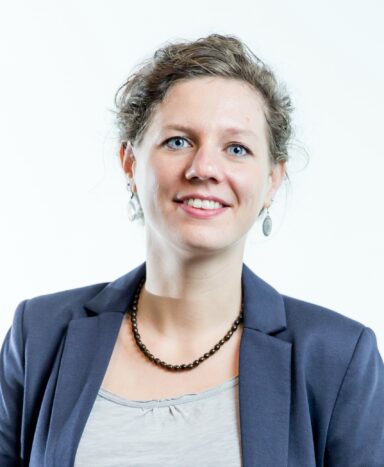
Birgit Stiller is an experimental physicist and the leader of an independent Max Planck Research Group on “Quantum Optoacoustics” at the Max Planck Institute for the Science of Light (MPL) in Erlangen, Germany. From 2015 to 2019 she held a position as Postdoctoral Research Fellow at the University of Sydney (Prof. Benjamin Eggleton), Australia, working on integrated photonic circuits.
Before that she was a Postdoctoral Researcher in the field of quantum communications, specifically quantum key distribution and quantum hacking at the MPL (Prof. Gerd Leuchs). She received her PhD from the CNRS Institute FEMTO-ST and the University of Franche-Comte in Besancon, France, where she was one of the pioneers on Brillouin scattering in photonic crystal fibers (Dr. Thibaut Sylvestre, Dr. Jean-Charles Beugnot).
Dr. Stiller has authored two book chapters, 30 journal articles, and more than 90 conference and workshop contributions, including five postdeadline papers. She is the recipient of the Prix A’Doc 2011 of the University of Franche-Comté (France) and she received scholarships from the Cusanuswerk and the CNRS.
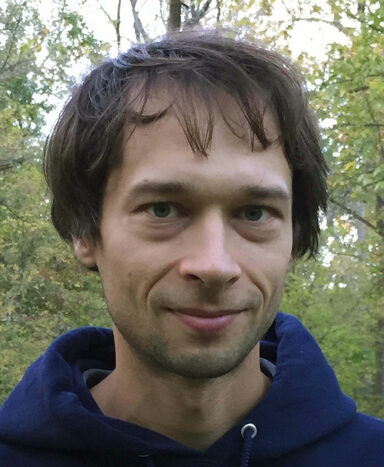
Born and educated in Bydgoszcz, Poland, I spent my university years studying broadly across different disciplines in the humanities and social sciences, taking advantage of an experimental liberal arts program at the University of Warsaw. I have been doing interdisciplinary history ever since, focusing on parallel use of natural scientific, archaeological and textual evidence to answer questions about the complex societies of the past and their social-ecological entanglements. I am a member of the Princeton-based Climate Change and History Research Initiative.
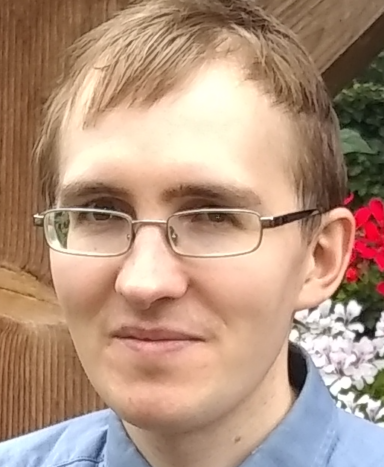
Adrian Hamers is an independent Max Planck Research Group leader at the Max-Planck-Institute for Astrophysics (MPA). He obtained his PhD from Leiden University in 2016, after studying physics and astronomy at Utrecht University. In 2016, he moved to the Institute for Advanced Study in Princeton, NJ, to work as a postdoctoral fellow. From September 2019, he is heading a new Research Group at the MPA. His interests lie in the areas of stellar evolution and gravitational dynamics, with a focus on compact objects, stellar systems, supermassive black holes, and planetary systems.
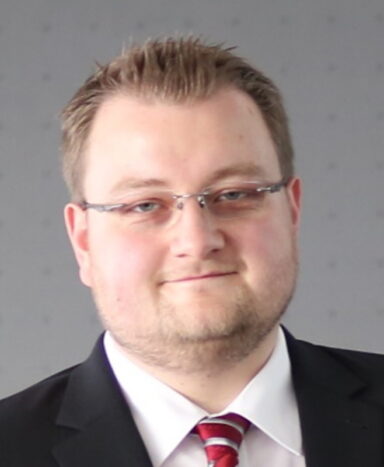
Justus Thies leads the Neural Capture & Synthesis Group at the Max Planck Institute for Intelligent Systems. He received his PhD from the University of Erlangen-Nuremberg in 2017 for his research on marker-less motion capturing of facial performances and its applications.
More recently, he focuses on neural image synthesis techniques that allow for video editing and creation. His work combines methods from the Computer Vision, the Machine Learning and the Computer Graphics field. He publishes regularly at top tier conferences with broad impact not only in the research community but also in public media.
He is particularly known for his work on facial reenactment and video manipulation (e.g., Face2Face).
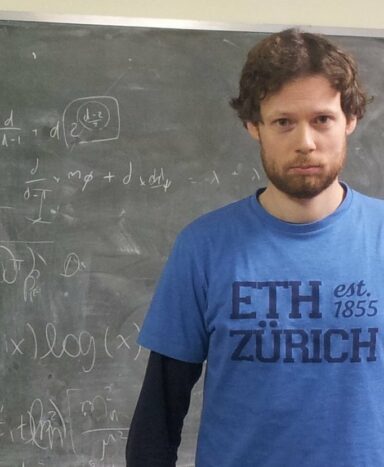
Being fascinated by fundamental research, and in particular by high-energy physics, after obtaining my diploma in physics (and a degree in Mathematics), I embarked on a PhD in theoretical physics at Mainz University under the supervision of Prof. M. Neubert. Since, even though it delivers an intriguing theory for the building blocks of matter and their interactions, the Standard Model (SM) of Particle Physics is not capable of explaining various fundamental facts of nature, my goal was to study the phenomenology of SM extensions and to propose new theories that can complete it. During my PhD, I worked extensively on various models with extra space dimensions and on Higgs and Flavor Physics.
Subsequently, I held postdoc appointments at ETH Zürich and at CERN, where I had great opportunities to follow my interests and broaden my research to further areas of particle physics and cosmology. One focus was on exploring models with a composite Higgs boson and on axion physics, where I proposed new setups to address various shortcomings of the SM in a comprehensive way, while another was on effective field theories. Here, I suggested new means to extract information about Higgs self-couplings, including links with baryogenesis, and on Higgs couplings to matter.
In 2017, I moved to the MPIK, getting the chance to build my own group to explore my research agenda and to advice and support students and guide them into the world of high energy physics, as I experienced in my own PhD.
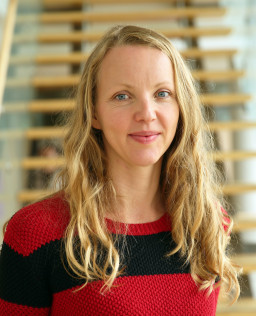
I am a “free-floating” Max Planck Research Group Leader at the Max Planck Institute for the Science of Human History (MPI-SHH), where I am leading the Transmission, Infection, Diversification & Evolution Group (tide). Prior to this, I was a Marie-Heim Vögtlin Fellow in the infectious disease unit of the University Hospital Zurich, and an ETH Zurich fellow at the ETH Zürich, Switzerland, developing phylodynamic methods for the analysis of infectious disease dynamics. I obtained my PhD in Computer Science from the University of Auckland.
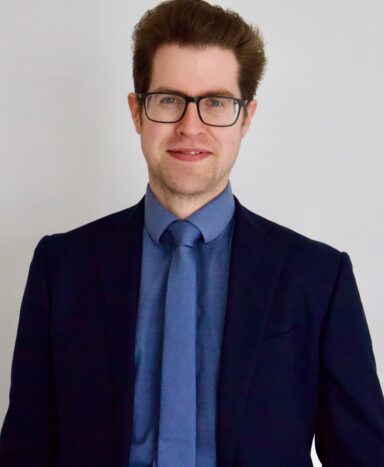
Born in Lower Austria, I studied Theoretical Physics at the TU Wien, where I also received my PhD under the supervision of Prof. Karsten Held and Prof. Alessandro Toschi.
Afterwards I moved to France and had the great opportunity to work with one of the founding fathers of the field, Prof. Antoine Georges, as well as Prof. Olivier Parcollet and Prof. Michel Ferrero at the world-renowned Collège de France and École Polytechnique. I am a regular visitor of the Center for Computational Quantum Physics at the Flatiron Institute in New York City.
Apart from physics I am fascinated by competitive ballroom dancing and the amazing world of wine.

I started my study of mathematics (and minor in physics) at the Ruhr-University Bochum. I went on to a PhD in mathematics at the University of Bonn. After holding postdoc positions in Berlin, Bremen and Bonn, I have been a non-tenure-track assistant professor (“Akademische Rätin auf Zeit”) at Ruhr-University Bochum until March 2021. Since April 2021, I am an MPRGL at the MPI for Mathematics in Bonn.
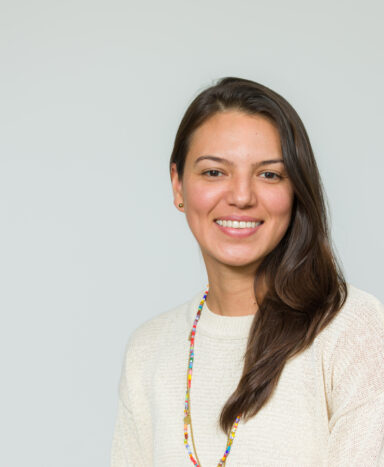
I was born in Ocaña, a city in northeast Colombia, and got my bachelor’s degree in Biology from the Universidad Nacional de Colombia in Bogotá. Then, with a fellowship from the Max-Planck Research School for Evolutionary Biology (IMPRS), I moved to Plön, Germany, where I did my Ph.D. at the Max-Planck Institute for Evolutionary Biology and the Christian-Albrechts-Universität zu Kiel, under the supervision of Diethard Tautz.
During my Ph.D. I studied the genetic basis of within and between species craniofacial morphology in outbred mice as a model for complex traits. Later on, with a Long-Term Postdoctoral Fellowship from the Human Frontiers Science Program (HFSP) I moved to Princeton University in the U.S. to study the genetic basis of complex traits in changing environments (genotype-by-environment interactions). During my postdoctoral work in the Ayroles lab, affiliated with the Ecology and Evolutionary Biology Department and the Lewis-Sigler Institute for Integrative Genomics, I used outbred Drosophila as model system and focused on gene expression variation at the population level. In February 2022, I moved back to Germany, to the Friedrich Miescher Laboratory (Tübingen), where I’m leading the Max Planck Research Group on Evolutionary Genomics of Complex Traits.
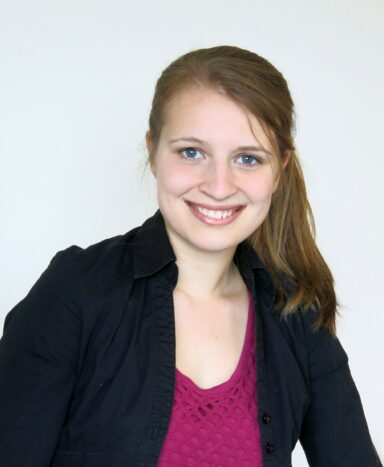
Dr. Kerstin Göpfrich is leading the Max Planck Research Group Biophysical Engineering at the Max Planck Institute for Medical Research in Heidelberg, exploring de novo approaches to create synthetic cells from the bottom up. In particular, her work focuses on DNA nanotechnology as a tool to arrange components inside synthetic cells in space and time or to construct functional units from scratch. She studied physics and molecular medicine at the University of Erlangen.
As a Gates Fellow at the University of Cambridge, UK, she then worked in the group of Ulrich Keyser and received her PhD in Physics in 2017. Until September 2019, Kerstin was a Marie Skłodowska-Curie Fellow at the Max Planck Institute for Intelligent Systems in Stuttgart in the department of Prof. Joachim Spatz. In 2017, she founded www.ring-a-scientist.org to bring science into the classroom.

I studied the bachelor and master program “Molecular Biology and Genetics” at Masaryk University in Brno (Czech Republic) where I investigated the molecular mechanisms of bone formation. For my PhD education, I was delighted to join the newly formed laboratory of Prof. Vitezslav Bryja at the Institute of Experimental Biology (Masaryk University, Brno, Czech Republic), where I started exciting and novel project on the role of non-canonical WNT signaling in the pathogenesis of chronic lymphocytic leukemia. During my PhD, I spent almost one year in the laboratory of Prof. Gunnar Schulte at the department of Physiology and Pharmacology at Karolinska Institute (Stockholm, Sweden), where I broadened my knowledge of molecular signaling and cell behavior. For my postdoctoral education, I had the honor to work in the laboratory of Prof. Igor Adameyko at Karolinska Institute in Sweden and Medical University in Vienna. In these years I gained a substantial knowledge of developmental processes, utilized state-of-the-art methods, participated in numerous fruitful collaborations and groundbreaking science.
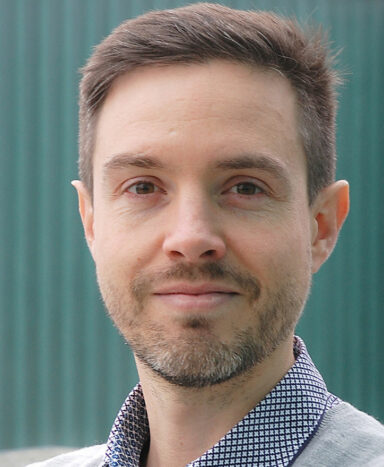
I have a long-standing interest in understanding the molecular mechanisms that allow cells to use their genetic information to perform normal cellular and physiological functions, such as development and differentiation, and how the mis-regulation of these molecular mechanisms leads to disease, such as cancer. Towards the end of my undergraduate studies in Madrid, and with the advent of the first genome sequences, I became fascinated by the then recently acquired ability of using genomic tools to monitor biological processes, such as gene expression, for large number of genes. Using computational biology approaches, during my PhD I performed the first functional characterisation of the human repertoire of transcription factors, a dataset that became a reference in the field. For my postdoctoral training at the EMBL – European Bioinformatics Institute in Cambridge, I switched my interest to chromatin, in particular focusing on understanding how specific chromatin modifications are used by cells to regulate the difference in sex chromosome dosage between males and females. Unexpectedly, this work revealed a link between the spatial organisation of chromatin and gene regulation, which fuelled my interest in the most current research focus of my Max Planck Research Group: the understanding of the spatial organisation of the genome in development and disease.


After training as a physicist, I switched fields after my PhD and have been working on the history of modern (20th Century) physics, with an emphasis both on technical-mathematical and epistemological analysis. After beginning my work as a historian in a project on the genesis of quantum mechanics (1900-1930), my research as a group leader has focused on the attempts to find a final theory of physics in the decades after World War II.
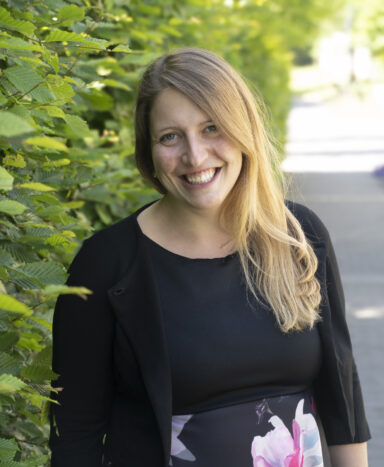
Dr. Katharina Höfer is leading the independent Max Planck Research Group Bacterial Epitranscriptomics at the Max Planck Institute for terrestrial Microbiology in Marburg, where she explores the biological role of RNA modifications in bacteria. In particular, her work focuses NAD-capped RNAs in bacteria, which she discovered and started to characterize during her PhD at Heidelberg University.
She studied Life Science and Molecular Biotechnology at the Universities of Hannover and Heidelberg. In 2017 she received her PhD at Heidelberg University. Since 2017 she became a Carl-Zeiss fellow at Heidelberg University, which allowed her to study the biological significance of RNA modifications. Moreover, Katharina is a member of the “Forschungsbörse” to bring science into schools.
For her work on NAD-capped RNAs, she has been awarded the PhD prize of the German Society for Biochemistry and Molecular Biology, the Ruprecht Karls Prize and the Science prize of the Ingrid-zu Solms Stiftung.
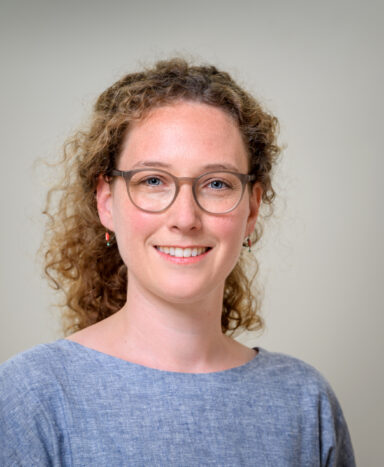
Lara Keuck is a historian and philosopher of the medical sciences. Her aim is to understand what biomedical researchers considered as sound science in different times and contexts, and what this meant for knowing something about a disease.
Studying the history of Alzheimer’s dementia, she traced how and why key assumptions of the biomedical model of this disease shifted throughout the twentieth century. Her publications examine models and classifications of human diseases with a particular interest in uncertainty and interest-relative vagueness.
Lara Keuck was trained in the biomedical sciences; she holds a PhD in history, philosophy and ethics of medicine, and has worked in philosophy and history of science for more than ten years. She embraces the dialogue between disciplines and to “society”, and loves methodological debates. Lara Keuck was a Branco Weiss Fellow of ETH Zurich, and became a member of Die Junge Akademie in 2020.
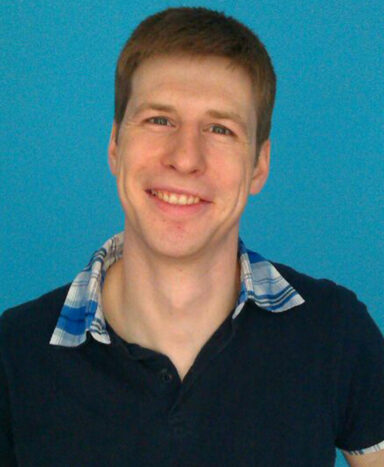
Grown up in the picturesque part of Germany called Thüringen, I studied Physics at the Friedrich Schiller University Jena and was one of the last students to receive a German diploma in 2008. (Now they all become Bachelors and Masters.)
Having enjoyed my first experiences in gravitational-wave data analysis with Prof. Schmeißer, and a one-year diploma project in the Numerical Relativity group of Prof. Brügmann, I moved on to the MPI for Gravitational Physics in Potsdam, also known as the Albert Einstein Institute, where I spent three and a half wonderful years (2009 – 2012) working on the interface of numerical relativity and gravitational-wave data analysis under the supervision of Bernard Schutz and Badri Krishnan.
After a few months as a post doc at the other Albert Einstein Institute in Hannover, I moved to Cardiff in September 2012, where I was a post-doctoral researcher under Stephen Fairhurst and later an ERC-funded Research Fellow under Mark Hannam.
My time in Cardiff had a great influence on me, and it also saw the (gravitational-wave) world changing on September 14, 2015. I was part of the international team of scientists that discovered and interpreted the first direct gravitational-wave observation of a black-hole binary. My small role in this gigantic endeavour was to help understanding what the signal we observed told us about the black holes it originated from. And it told us a lot!
Since November 2016 I have the honour to lead my own research group.
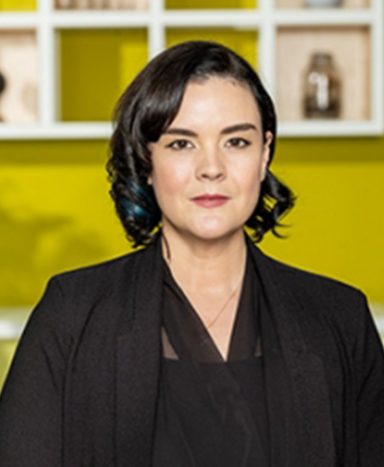
I am interested in understanding how human speech and language are biologically encoded, how these abilities evolved, and the causes of language related disorders. I was drawn to this research area during my DPhil at the University of Oxford that sought to understand the functions of genes that cause speech and language disorders.
I demonstrated how patient mutations in one such gene, FOXP2, cause altered neurodevelopment in mouse and human models, and identified a relationship between FOXP2 and the CNTNAP2 gene, demonstrating a novel genetic mechanism shared across clinically distinct language-related syndromes.
In 2016, I was awarded a Max Planck Research Group (MPRG) Grant and a Human Frontiers Science Program (HFSP) Research Grant to establish a research group at the Max Planck Institute for Psycholinguistics.
My group uses bats for comparative studies of speech and language relevant traits. We focus on the abilities of bats to learn novel vocalizations (vocal learning), an ability they share with humans, and that underlies the human ability to learn to communicate via spoken language. I am a founding director of the Bat1K genome project that aims to sequence the genomes of all living bat species (www.bat1k.com), a Donders institute affiliated principal investigator, a visiting professor at the University of Turin, and a member of the FENS-KAVLI network of excellence (http://fenskavlinetwork.org/).
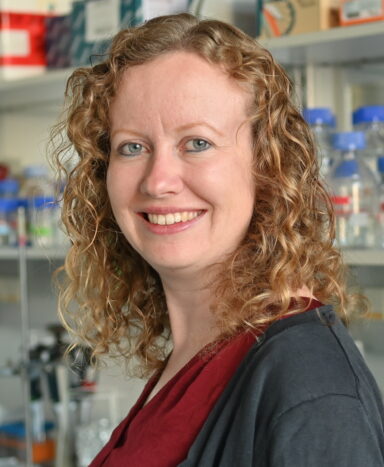
I am a structural biologist, interested in membrane protein targeting and insertion. After completing a master’s in molecular and cellular biochemistry at Brasenose College, University of Oxford, I embarked on a Ph.D. as part of the Wellcome Trust Graduate Program in Structural Biology. Within the lab of Susan Lea at the Sir William Dunn School of Pathology in Oxford, I investigated the molecular arrangement of components within the bacterial Type III Secretion System.
Inspired by this amazing membrane-embedded complex and a love of Germany, I successfully applied for an EMBO long-term fellowship to study eukaryotic membrane protein biogenesis. During my postdoc with Irmi Sinning at the Heidelberg University Biochemistry Center, I determined structures of the Get1/Get2 membrane protein complex that showed us how tail-anchored membrane proteins are inserted into the endoplasmic reticulum membrane. It was a huge honor to be awarded a ‘free-floating’ Max Planck Research Group Leader position, allowing me to start the membrane protein biogenesis group at the MPI of Biophysics at the beginning of 2022.
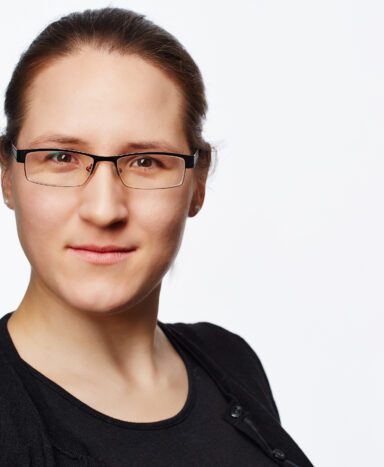
Monika Scholz studied Physics at the Julius-Maximilians-University in Würzburg, receiving her B.Sc. in 2010, and after further studies, she received her Diploma degree in Physics from the Technical University Dresden in 2012. After moving to the US and joining the PhD-Program of the University of Chicago she worked with Aaron Dinner and David Biron.
In 2014 she won a HHMI predoctoral fellowship, which supported her work on feeding behavior in C. elegans. She was awarded a William Rainey Harper Dissertation Fellowship and the Stephen B. H. Kent Prize in Biophysical Sciences for her dissertation. After obtaining her PhD-degree in Biophysics in 2017, she moved to Princeton University as a Dicke-Fellow in the Physics Department. There she used whole-brain calcium imaging of C. elegans to study the neural basis of behavior. She is now at caesar, Bonn to establish a Max Planck Research group with the long-term goal to discover and describe the principles underlying information transfer, processing, and compression in animals.
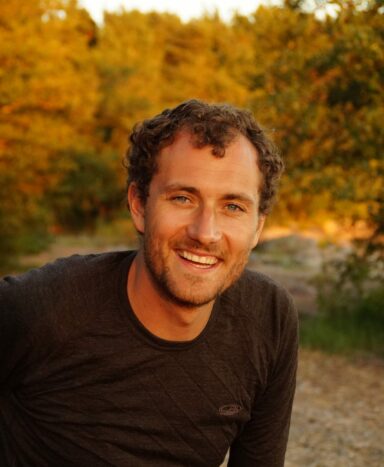
I grew up in Schramberg, a small town in the black forest area in Germany, and moved to Berlin for my undergraduate studies.
For my graduate studies, I moved north to Oslo, Norway, where I obtained my PhD from the Institute of Theoretical Astrophysics in 2017. Then I started my postdoc at the University of California, Santa Barbara (UCSB), and I obtained the NASA Hubble fellowship which I completed at UCSB and the Johns Hopkins University in Baltimore.

I studied biology in University of Porto, and did my PhD at the IMM Lisbon, supervised by Maria Mota, where we showed in a mouse model that Plasmodium blood-stage infections suppress re-infection by newly inoculated sporozoites. Then, I joined Pete Crompton’s lab at the NIH in Rockville, focusing on naturally acquired immunity to malaria in the seasonal transmission region of Mali, and we proposed a novel model of how children in endemic areas tend to remain asymptomatic and control parasite replication despite repeated P. falciparum infections.
In collaboration with Sue Pierce, we described how B cell receptor signaling and effector function is impaired in malaria-associated atypical memory B cells.
In a close partnership between the NIH and the Mali International Center for Excellence in Research we designed a clinical study to elucidate how persistent parasitaemias in the dry season affect the risk of clinical malaria. We demonstrated that treatment of asymptomatic P. falciparum infections which persisted during the dry season did not alter the malaria risk on the ensuing transmission season.
In 2016 became a junior group leader at the Parasitology Department of Heidelberg University Hospital and my lab showed that during the dry season parasites are transcriptionally distinct from those of subjects with febrile malaria in the wet season, reflecting longer circulation within each replicative cycle of parasitized erythrocytes without adhering to the vascular endothelium.
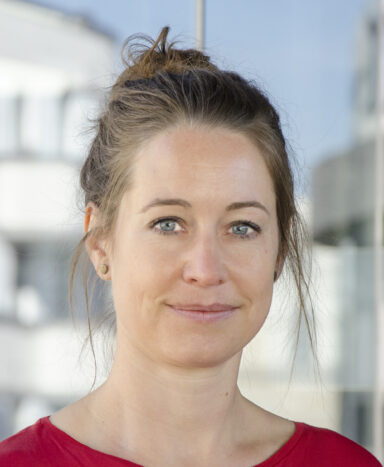
I am a Cognitive Neuroscientist and Neuropsychologist interested in adaptive systems plasticity in neural networks for cognition. I completed my PhD in Hartwig Siebner’s research group at Kiel University in 2010. My PhD project focused on the role of the right hemisphere in language processing. To this end, I developed multifocal neurostimulation approaches to probe the functional relevance of right-hemispheric brain regions for language comprehension.
In 2010, I joined Dorothee Saur’s Language and Aphasia Laboratory at Leipzig University. During my postdoc, I combined neurostimulation approaches with neuroimaging to study short-term reorganization in the healthy and lesioned language network. From 2011-2013, I was supported by the DFG to study fronto-parietal interactions in the language network. I was appointed as Assistant Professor (Junior Professor) for Biological Psychology at Kiel University in 2013
In 2015, I was appointed as Research Group Leader at the Department of Neuropsychology, MPI CBS, and then I started my independent Lise Meitner Research Group Cognition and Plasticity at the MPI CBS in 2019.
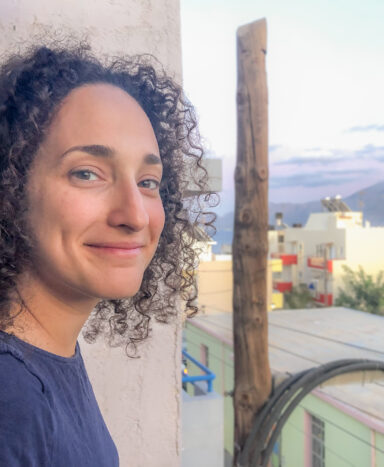
I grew up in the beautiful Calabria (Southern Italy) and moved to Bologna to study Industrial Chemistry. I worked on high-resolution IR spectroscopy for my bachelor and master thesis, and then flew to Cambridge (MA) to work in the Center for Astrophysics (CfA) at the Harvard University for a one-year pre-doctoral fellowship.
During my stay at the CfA I started working on astrochemistry and spectroscopy of molecules of astrophysical interest. I then did my PhD at the University of Cologne, and subsequently moved to Munich at the Max Planck Institute for Extraterrestrial Physics.
Between 2017 and 2020 I lead a small group in the framework of my MPG Minerva fast-track fellowship, and in November 2020 I will start my position as Max Planck independent group leader.
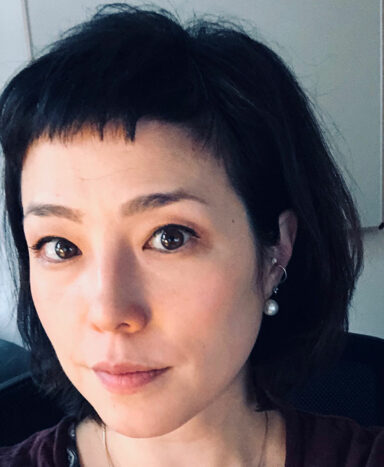
Andrea E. Martin is a Principal Investigator at the Donders Centre for Cognitive Neuroimaging at Radboud University, and a Research Group Leader at the Max Planck Institute for Psycholinguistics. She grew up in California and Massachusetts. She received a BA in Cognitive Science from Hampshire College in Amherst, Massachusetts (2004), and an MA (2006) and PhD in Experimental Psychology (2010) from New York University. She was a postdoc at the Basque Centre on Cognition, Brain, and Language (2010-2012), a lecturer/assistant professor in Psychology at The University of Edinburgh (2012-2017), and a senior investigator in the Psychology of Language Department at the MPI for Psycholinguistics (2016-2018). She has led two independent research groups, one at the University of Edinburgh funded by the ESRC (2012-2017) and the other funded by the Netherlands Organization for Scientific Research and the Max Planck Gesellschaft. Her website is www.andreaemartin.com; twitter @andrea_e_martin.
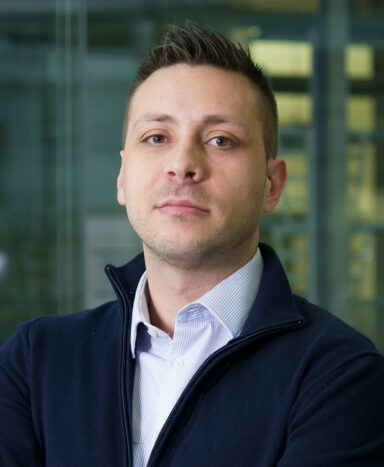
Dr Constantinos Demetriades is a molecular cell biologist working in the field of nutrient sensing and cell growth control. He currently functions as a a Max Planck Research Group Leader (MPRGL) at the Max Planck Institute for Biology of Ageing (MPI-AGE) in Cologne. He is also affiliated to the CECAD Research Center of the University of Cologne, as an Associated PI, and serves as a Faculty Member of the Cologne Graduate School of Ageing Research (CGA). His work has previously elucidated the mechanistic details of mTOR inactivation in response to nutrient starvation, has identified the TSC protein complex as an integral compartment of the amino acid sensing signaling pathway, and has revealed how information from multiple, diverse, cellular stresses is integrated to control cellular physiology.
Dr Demetriades is a European Research Council (ERC) grantee, and has also been awarded a Minerva-Heineman Research grant (funded by the Minna-James-Heineman Foundation), and a Walther Flemming Award from the German Society for Cell Biology (DGZ), recognizing his contribution to the field of cell biology. As an ERC and MPG delegate, Dr Demetriades has also participated as a co-organizer, speaker and expert panel member in the ‘Healthy Ageing’ session of the 2019 World Economic Forum (WEF) meeting in Davos. He is a member of several scientific societies and an Alumnus of the 61st Lindau Nobel Laureate Meeting in Medicine and Physiology.
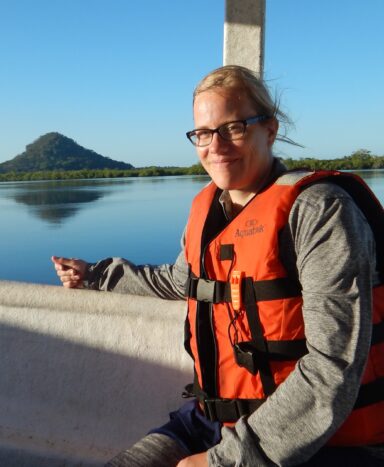
Currently, Dr. Wilkins runs the Eco-Evolutionary Interactions Group at the Max Planck Institute for Marine Microbiology in Bremen. She cares about diversity, creativity, and an inclusive environment in academia. “The MPI in Bremen offers the necessary resources and network to reach our scientific and community-driven goals. We are very excited to be part of the Max Planck Family and the only Max Planck Research Institute of Marine Research.” (L. Wilkins, May 16th, 2022)
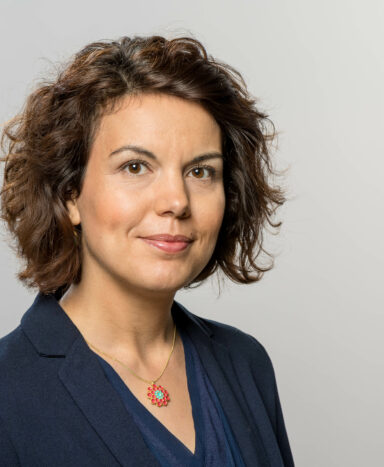
Danny Nedialkova studied biotechnology at the University of Perugia (Italy) from 2001 to 2004 and received her doctorate in molecular virology from Leiden University (The Netherlands) in 2010. She later worked as a postdoc at the Max Planck Institute for Molecular Biomedicine in Münster, with a long-term fellowship from the European Molecular Biology Organization.
Since 2017, she leads the Max Planck Research Group “Mechanisms of Protein Biogenesis” at the MPI of Biochemistry in Martinsried. That same year, she was appointed as a Tenure-Track Professor for Biochemistry of Gene Expression at the Department of Chemistry (TU Munich) through the MaxPlanck@TUM program.
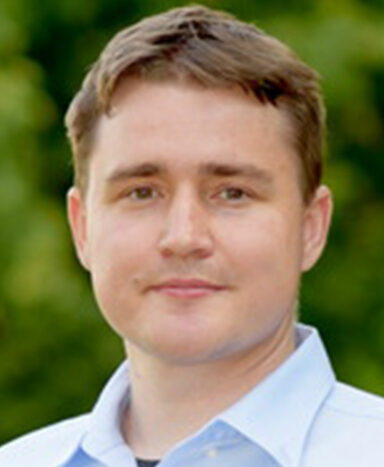
I worked on feedback-driven central pattern generators (BvP model) on a small humanoid hopping robot for my Diploma thesis, with my supervisors Hartmut Witte at Technical University of Ilmenau, Germany and Luc Berthouze in Tsukuba, Japan at AIST.
At Ecole polytechnique federale de Lausanne (EPFL, Switzerland) I developed the YaMor II and the Roombots self-reconfiguring modular robot platform, for my PhD thesis at Auke Jan Ijspeert’s Biorobotics laboratory. For my postgraduate studies I co-developed the quadruped robot series Cheetah-cub, Bobcat robot, and Oncilla robot, also at the Biorobotics lab.
I worked with Jonathan Hurst at Oregon State University (USA) on the ATRIAS2.1 robot. I had an exciting research stay with Monica Daley at the Royal Veterinary College (RVC, London, UK) working on locomotion of the helmeted guineafowl, a ground running bird. After, I worked with Metin Sitti at the Max Planck Institute for Intelligent Systems.
I currently lead the Dynamic Locomotion Group at the Max Planck Institute for Intelligent Systems, as a MP Research Group Leader. I am also faculty member at the International Max Planck Research School for Intelligent Systems (IMPRS-IS) , and Associate Member of the Max Planck ETH Center for Learning Systems.
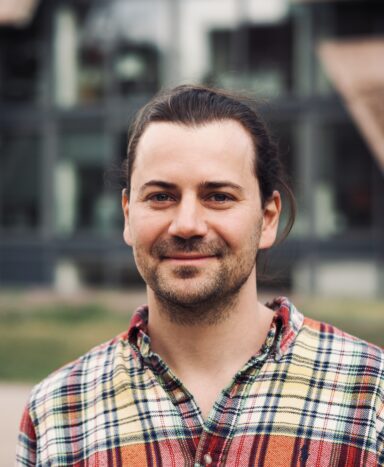
I am a Max Planck Research Group Leader at the MPI for Infection Biology. Previously I was a postdoc fellow in the lab of Tami Lieberman at MIT (Cambridge, USA). Before that I worked as a postdoc associate in the department of Johannes Krause at the MPI for the Science of Human History (Jena, Germany). I completed my PhD in population genetics under the supervision of Aida Andrés in the department of Svante Pääbo at the MPI for Evolutionary Anthropology (Leipzig, Germany).
My current research involves the development and application of methods to integrate population genomic datasets to understand the evolution of bacterial pathogens on a historical (ancient DNA) and rapid (within person) time scale.
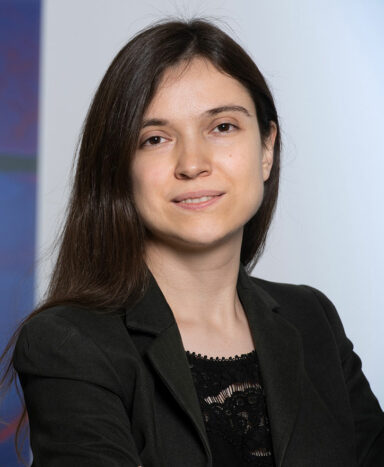
I have received my PhD in Biology from EMBL with a joint degree from Heidelberg University. During my PhD I worked on understanding the impact of transposable elements on gene regulation by studying LTR elements in developing mouse embryo. In a collaboration with Didier Trono from EPFL Switzerland we identified KAP1/TRIM28 as the master epigenetic regulator of Endogenous Retroviral elements. After a short bridging postdoc period at EMBL I have started my postdoc at Max Planck Institute of Immunobiolgy and Epigenetics in Freiburg. During my postdoc I worked with an abundant nuclear RNA helices, DHX9. We discovered that DHX9 suppresses RNA processing defects which are caused by the large secondary structures of Alu repeats embedded within genes. This work has paved the way to understanding the contribution of RNA binding proteins in enabling the transposable element expansions in genomes. We have as well developed new methods to explore Protein-RNA interactions in order to overcome the difficulties of conventional CLIP technologies. Since December 2018, I am heading the Max Planck Research Group for Quantitative RNA Biology at Max Planck Institute for Molecular Genetics in Berlin.
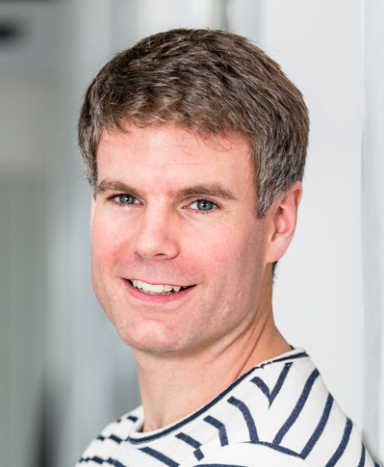
Lacking an academic background, and initially unsure of what I was interested in, I studied a very broad Medical Sciences undergraduate degree in Leeds. I quickly realised I wanted to understand systems in great detail, and thus specialised in biochemistry. Upon graduation I moved to Cambridge to work as a research assistant in the MRC-LMB in the lab of Venki Ramakrishnan.
Working in the Ramakrishnan lab sparked my interest in structural biology, and after two years moved to pursue a PhD with Elena Conti. I was initially at the EMBL in Heidelberg, and later moved with Elena to the Max Planck in Martinsried. My PhD work revealed some unique structural features of an RNA helicase, and how this might contribute to its function with other cofactors and the RNA exosome.
I continued within the Max Planck Society as a Postdoc, moving to the group of Andrea Mussacchio at the MPI of Molecular Physiology in Dortmund. In Andrea’s lab I helped to unravel the biochemical puzzle of protein organisation within the kinetochore. Kinetochores are vast protein assemblies, built on chromosomes, that ensure that each chromosome is properly segregated during both mitosis (“normal” cell division) and meiosis; the generation of haploid germ cells for sexual reproduction. In my independent research group I now study the biochemical mechanisms of meiosis at the Friedrich Miescher Laboratory in Tübingen.
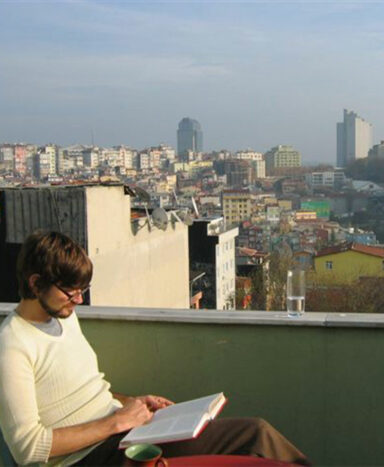

Jeremy F. Walton is a cultural anthropologist whose research resides at the intersection of memory studies, urban studies and new materialism. He leads the Max Planck Research Group, “Empires of Memory: The Cultural Politics of Historicity in Former Habsburg and Ottoman Cities,” at the Max Planck Institute for the Study of Religious and Ethnic Diversity. Dr. Walton received his Ph.D. in Anthropology from the University of Chicago in 2009. His first book, Muslim Civil Society and the Politics of Religious Freedom in Turkey (Oxford University Press, 2017), is an ethnography of Muslim NGOs, state institutions, and secularism in contemporary Turkey. Prior to his current position, he held research and teaching fellowships at the Center for Advanced Studies of Southeastern Europe at the University of Rijeka, the CETREN Transregional Research Network at Georg August University of Göttingen, Georgetown University’s Center for Contemporary Arab Studies, and New York University’s Religious Studies Program. He has published his research in a wide selection of scholarly journals, including American Ethnologist, Die Welt Des Islams, and History and Anthropology. He is also the co-editor of several volumes, including Anthropology and Global Counterinsurgency (University of Chicago Press, 2010). “Empires of Memory,” which he designed, is a groundbreaking interdisciplinary project on post-imperial memory in post-Habsburg and post-Ottoman realms.
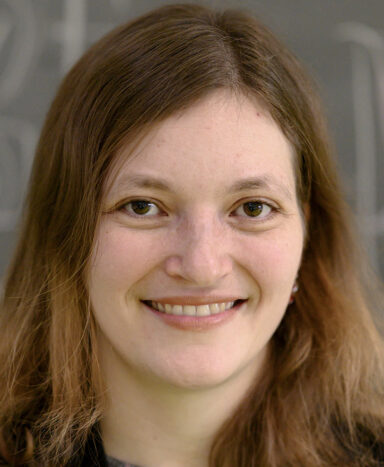
Prof. Harbauer studied Molecular Medicine at the University of Freiburg and did her PhD at the Institute for Biochemistry and Molecular Biology (Prof. Meisinger). She spent 2015-2019 researching as a PostDoc in the lab of Prof. Tom Schwarz at Boston Children’s Hospital /Harvard Medical School in Boston. Since September 2019, Prof. Harbauer is a Max-Planck Research Goup Leader at the MPI for Neurobiology in Martinsried. She was appointed the Professorship “Neurons and Metabolism” at the TUM in September 2019.
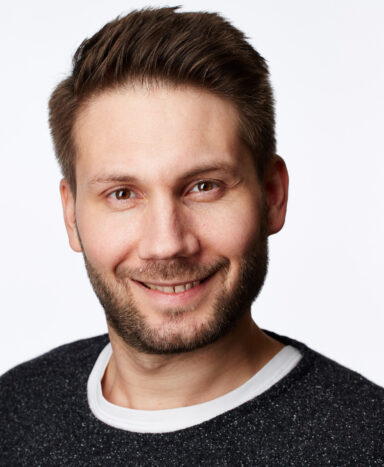
Dr. Pascal Malkemper studied neurobiology at the University of Bochum from 2005 to 2011. He developed a strong interest in sensory biology and was fascinated by the diverse functional anatomy of the sensory organs of different species. With a passion for non-standard model organisms, he conducted his Ph.D. thesis on the sensory biology of the red fox under the supervision of Hynek Burda in Germany and the Czech Republic. For his doctoral thesis, he received the renowned Fritz Frank Prize of the German Society for Mammalian Biology. During his doctoral thesis, he became interested in mole rats, which were housed in the Burda laboratory next to his office. After graduating in 2014, Pascal was able to receive two start-up grants that allowed him to pursue independent projects on the magnetic sense de gray bulls in the Burda laboratory. In 2016 he moved to Vienna and joined the Keays Laboratory at the Research Institute of Molecular Pathology (IMP) to work on the molecular basis of the magnetic sense of pigeons. From October 2019, Pascal will again focus on the magnetic sense of mammals as head of the Max Planck Research Group “Neurobiology of Magnetoreception”. The long-term goal of the group is to map the neural machinery involved in magnetic orientation in mole rats and mice, from magnetoreceptors to higher brain circuits.
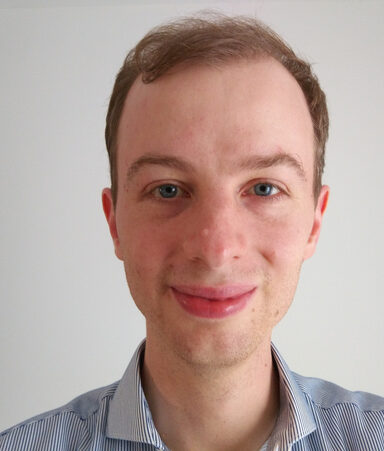

Pierre Haas is an applied mathematician from Luxembourg. After his undergraduate studies at Cambridge, at the end of which he was awarded the Mayhew Prize, he stayed in Cambridge for his doctoral work under the supervision of Prof. Raymond E. Goldstein FRS, in the Department of Applied Mathematics and Theoretical Physics. He submitted his thesis on the “Mathematics of Morphogenesis: Inversion in Volvox and Other Questions of Shape” in 2016; this was awarded the American Physical Society’s Award for Outstanding Doctoral Thesis Research in Biological Physics in 2017.
He failed to leave Cambridge once again, his research was first funded by an EPSRC Doctoral Prize Fellowship and then an independent Nevile Research Fellowship at Magdalene College. In 2020, he moved to the “Other Place” (the University of Oxford), to take up a Hooke Research Fellowship at the Mathematical Institute, and a Senior Demyship at Magdalen College.
From January 2021, he will lead the interdisciplinary Max Planck Research Group “Self-Organization of Multicellular Systems” at the Max Planck Institutes for the Physics of Complex Systems and of Molecular Cell Biology and Genetics, based at the Center for Systems Biology in Dresden.
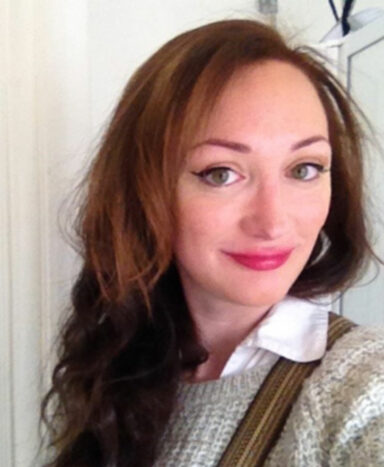
I am the Lise Meitner Professor at the Max Planck Institute for the Science of Human History (MPI-SHH), where I am leading the Pan African Evolution Research Group (Pan-Ev). I was formerly the first Marie Skłodowska-Curie Actions funded fellow at the MPI-SHH, where I set up and led the aWARE project. Prior to this, I was a British Academy Fellow in Archaeology at the School of Archaeology, University of Oxford where I was also a Junior Research Fellow at Jesus College. This position followed by my first, Fyssen Foundation funded postdoctoral fellowship which I held at the University of Bordeaux. I obtained my PhD in Archaeology from the University of Southampton, jointly funded by the Royal Anthropological Institute and the Sutasoma Trust.
